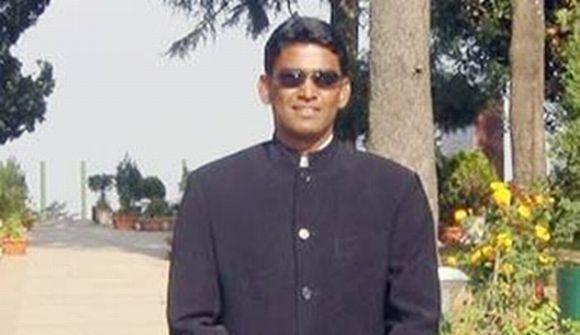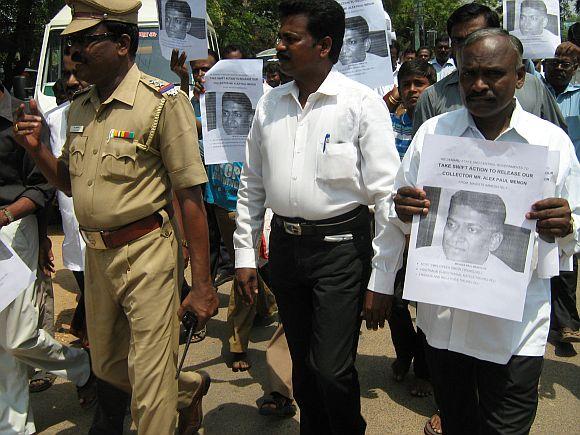Photographs: Courtesy: Facebook
Philosopher George Santayana's prediction that those who forget history are condemned to repeat it is coming eerily true in the jungles of east and central India, where state governments have encouraged Maoist terror by succumbing to serial hostage deals.
The kidnapping of Sukma district collector Alex Paul Menon in Chhattisgarh last weekend came just days after the Maoists in Odisha released an Italian tour operator in return for the handing over of 27 imprisoned members of their group.
Odisha legislator and Biju Janata Dal leader Jhina Hikaka, meanwhile, was released on Wednesday after an extended captivity -- one that did not seem to have caused various state governments to draw the obvious lesson of urgently tightening security measures.
The Maoist groups in neighbouring Chhattisgarh were quick to read the message from this softening of the state; they are now holding Mr Menon in anticipation of more prisoner releases.
To be sure, state governments are faced with a difficult dilemma. It is understandably influenced by the very human impulse to rescue innocent victims, especially in the face of the considerable emotional pressure applied by the families of those who are kidnapped.
...
India paid a high price for releasing Masood Azhar
Image: Jaish-e-Mohammed founder Masood AzharPhotographs: Reuters
But even after factoring in the human element to the issue, the government has strong precedents on its side to not succumb. Juxtapose the 1999 image of then Foreign Minister Jaswant Singh hand in hand with Masood Azhar at Kandahar airport with the scenes of carnage outside the Parliament building in 2001 and in Mumbai in 2008.
Mr Azhar founded the Jaish-e-Mohammed, one of the most active (and well-funded) of India-focused terror groups. He remains, to this day, at large in Pakistan-occupied Kashmir.
India paid a high price for its decision to swap the passengers of Kathmandu-Delhi flight IC 814 -- plus some Rs 500-odd crore in cash -- for 36 inmates of Indian prisons. In interviews, Singh has said it was very difficult to resist the pleas of relatives of the hijack victims.
True, but India paid a much steeper price in blood in the decade that followed. As with the state governments now, the Bharatiya Janata Party had not learnt the lessons of exactly a decade before.
...
States are meant to have a monopoly of power
Image: Residents of Tirunelveli gather at the collectorate office with posters of Alex Paul Thomas urging for his early release from Maoist captivation in ChhattisgarhPhotographs: A Ganesh Nadar/Rediff.com
That was when former home minister Mufti Mohammad Sayeed's daughter was kidnapped and then swapped for prisoners, one of the sparks for two decades of violence in Kashmir.
From the evidence of the past month, every deal that is struck with the Maoists will lead to a vicious cycle of more kidnappings, violence and unrest, just as did in Assam with United Liberation Front of Assam and Bodo militants.
It could be argued that several corporate houses have paid local terrorists to good effect, so the government should be able to extract similar advantages. Commercial deals of this type, however, cannot be equated with political decisions, for which the repercussions can be far wider and deep-rooted.
States are meant to have a monopoly of power; when it is challenged by kidnappings, displaying weakness is to empower the Maoists further. A common policy towards kidnapping should be evolved, and skilful federal and inter-party diplomacy should be used to get Maoist-hit states to sign on.





article